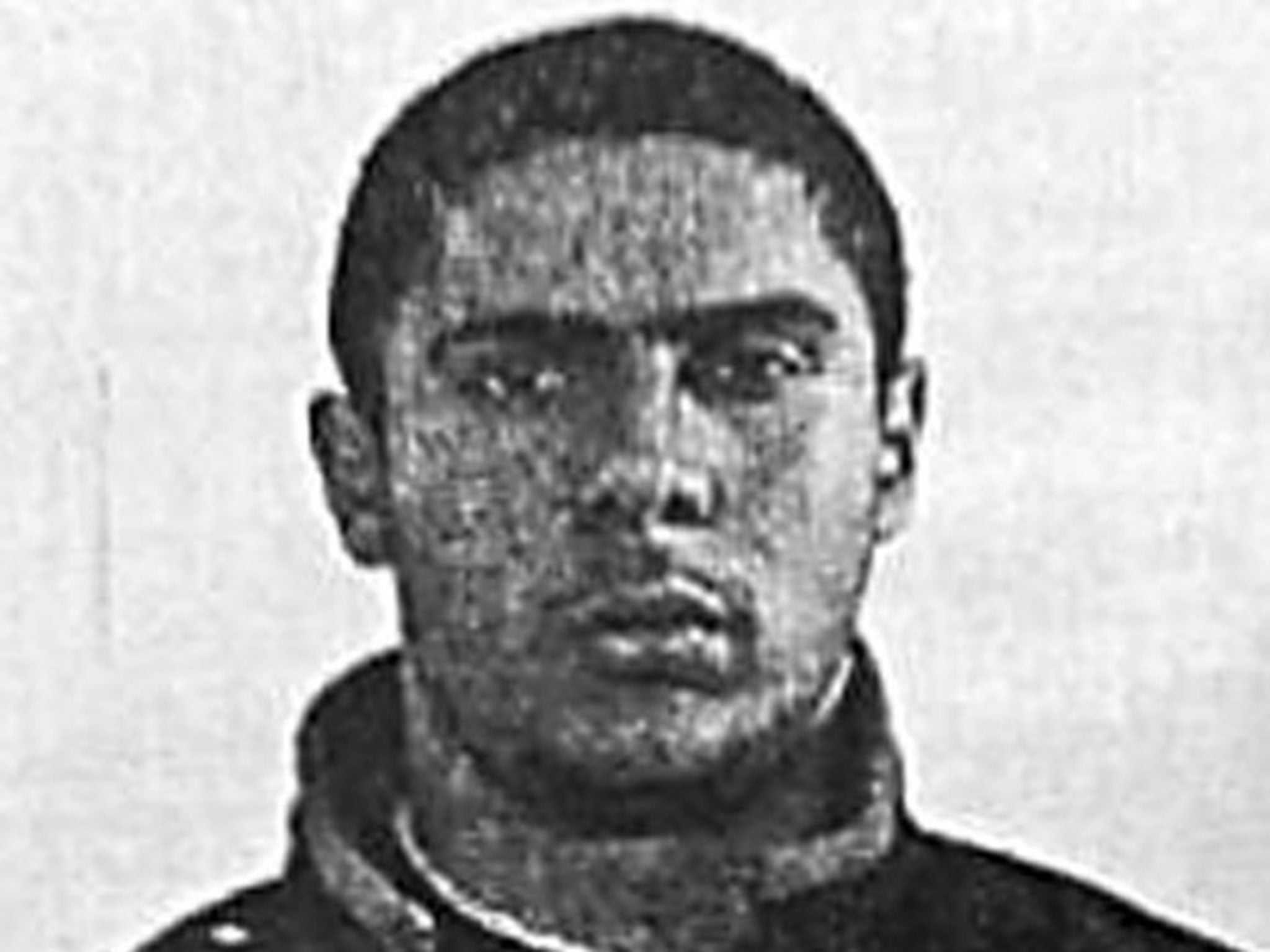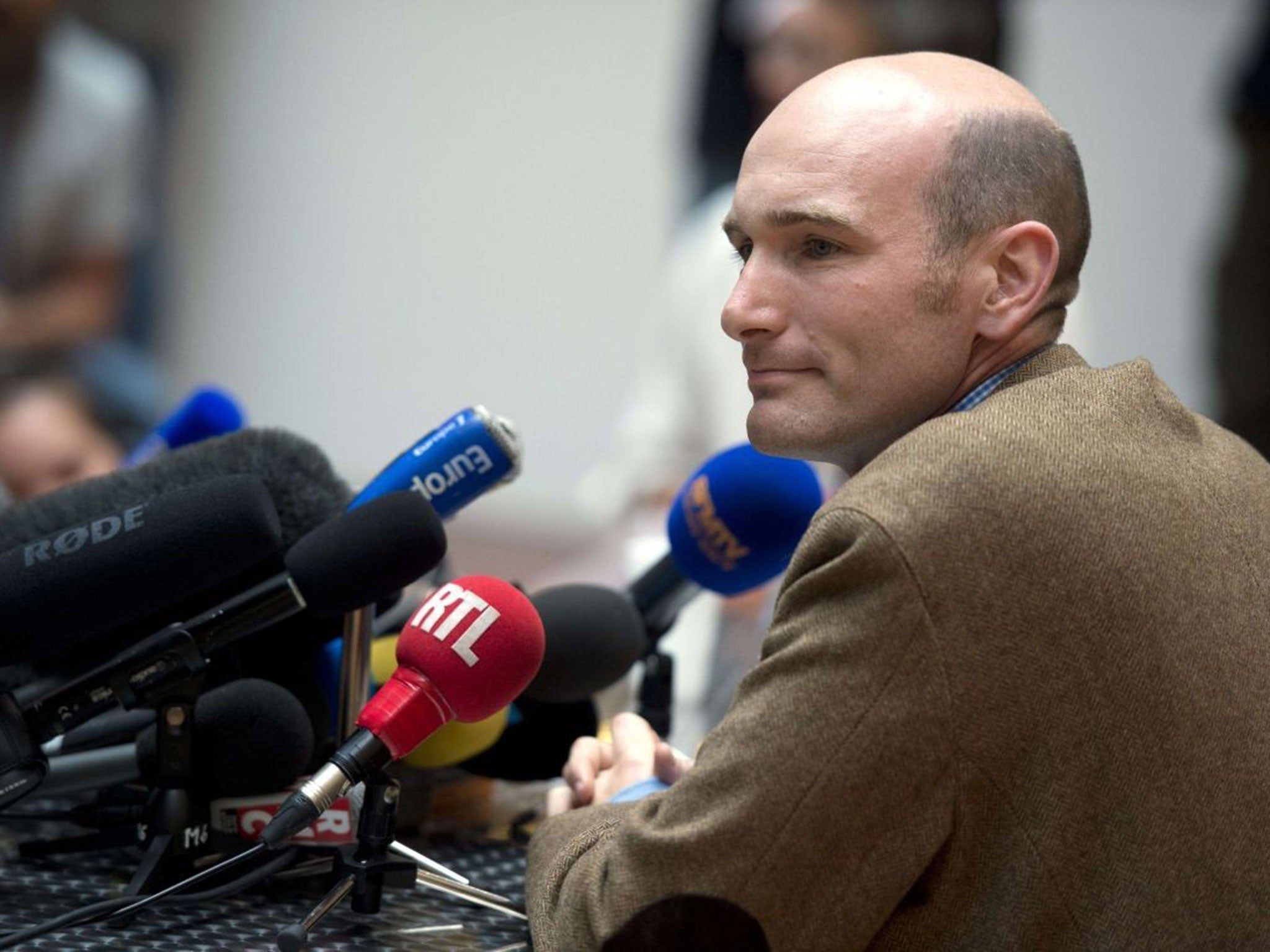Brussels Jewish museum massacre suspect Mehdi-Nemmouche is Syrian captor, claims kidnapped journalist
Nicolas Henin says Mehdi Nemmouche was among his captors from July 2013 to December 2013

Your support helps us to tell the story
From reproductive rights to climate change to Big Tech, The Independent is on the ground when the story is developing. Whether it's investigating the financials of Elon Musk's pro-Trump PAC or producing our latest documentary, 'The A Word', which shines a light on the American women fighting for reproductive rights, we know how important it is to parse out the facts from the messaging.
At such a critical moment in US history, we need reporters on the ground. Your donation allows us to keep sending journalists to speak to both sides of the story.
The Independent is trusted by Americans across the entire political spectrum. And unlike many other quality news outlets, we choose not to lock Americans out of our reporting and analysis with paywalls. We believe quality journalism should be available to everyone, paid for by those who can afford it.
Your support makes all the difference.A French journalist held hostage for months by extremists in Syria has identified one of his captors as a Frenchman suspected of later killing four at the Brussels Jewish Museum, saying the militant had took sadistic delight in mistreating prisoners.
Nicolas Henin said he often heard Mehdi Nemmouche, who he said was among his captors from July 2013 to December 2013, torturing Syrians who were being held in the same former hospital basement.
Once, Mr Henin told reporters, Nemmouche punched him in the face and then showed off his gloves.
“He was very proud, telling me 'You saw these motorcycle gloves? I bought them just for you, to punch you in the face. Did you like them?' That sums up the violent and provocative personality of Mehdi Nemmouche that I frequently saw,” Mr Henin said.
He arranged the news conference today after the information came out in French publications Le Monde and Le Point. He said he was unhappy that it had become public.
Mr Henin was held for a time with American journalists James Foley and Steven Sotloff, both beheaded by extremists from the Islamic State group in recent weeks. He was released in April with other French journalists who had been held since June 2013.

Nemmouche has been in custody since his arrest in France soon after the Brussels killing in May. The attack reinforced fears that Europeans who join radical fighters in Syria could return to stage attacks at home.
“It seemed to us that he did not leave for Syria because of some grand ideals but, above all, to make his mark, to carry out a murderous path that he had traced,” Mr Henin said.
Nemmouche's lawyer, Apolin Pepiezep, questioned the latest account, saying his client was never interrogated about hostages.
France's top security official, Bernard Cazeneuve, confirmed that Nemmouche had been identified as a captor and said the information was passed to investigators. Mr Henin said he recognised Nemmouche from video and audio recordings after the suspect's arrest in the Brussels shooting.
French authorities say there are some 900 people from France who have been implicated in jihad in the Syria region. Several dozen have been killed.
Speaking to The Associated Press last month, Mr Henin described how Mr Foley had endured tougher treatment from captors because of his citizenship, but always behaved with courage and dignity.
He and the other French journalists released in April described being held in about 10 underground places of captivity, mostly with other people. But they did not elaborate on some details of captivity because of potential consequences for hostages still being held.
AP
Join our commenting forum
Join thought-provoking conversations, follow other Independent readers and see their replies
Comments